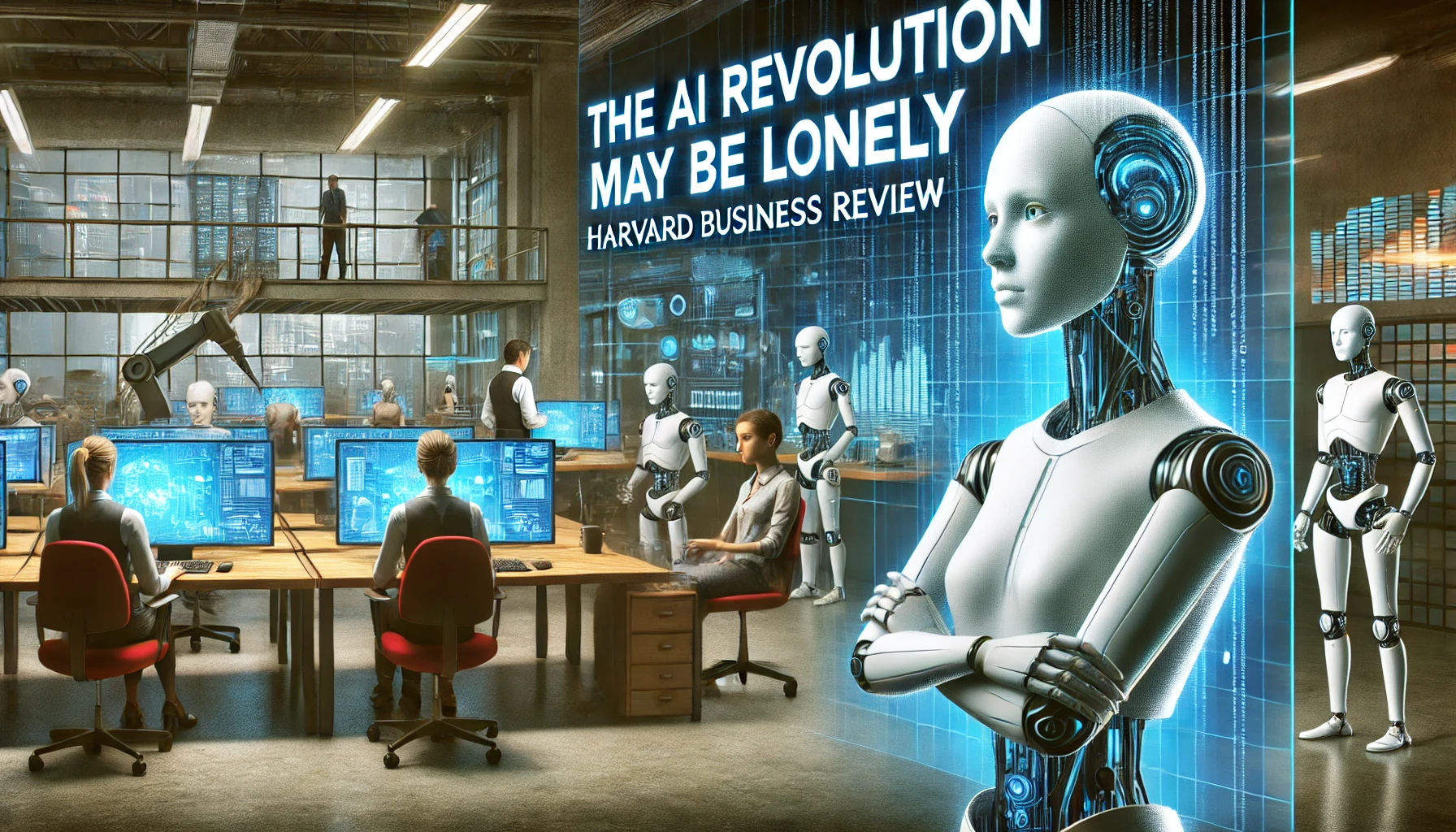We’re entering a brave new world of automation, where machines are taking over many tasks, promising increased efficiency and productivity. But there’s a dark side to this shiny new reality, and it’s not about robots taking over the world, it’s about the silent, insidious erosion of human connection. A recent study published in the Harvard Business Review reveals a startling truth about the impact of AI on our work lives: It might be making us lonely and anxious.
The study, titled “The Loneliness of Artificial Intelligence,” delves into the unforeseen consequences of relying heavily on AI in the workplace. While AI enables faster work, it also creates a cold, impersonal distance between employees. The study argues that the interaction with AI, while making workers more efficient, leads to a sense of isolation and detachment from colleagues. Imagine a world where teamwork, collaboration, and the simple joy of sharing a laugh over a shared problem are replaced by interactions with algorithms. This is the reality that the study warns us about.
The report goes on to highlight the loss of shared time with colleagues as a major contributing factor to the negative impacts of AI on employee well-being. Less shared time translates into fewer opportunities for collaboration, idea sharing, and social bonding. The study paints a bleak picture of work becoming a solitary, emotionless experience, where human connection is lost in the pursuit of efficiency.
This is not a time to panic, but it’s a time to be aware. As business leaders, we must take a proactive approach to the integration of AI in our workplaces. Simply introducing AI and expecting employees to adapt is a recipe for disaster. We need to design work processes that leverage the strengths of both humans and AI, while prioritizing human connection and fostering a culture of social interaction.
Closing Thoughts:
The AI revolution is unfolding before our eyes, and we must ensure that it doesn’t come at the cost of our humanity. While AI has the potential to enhance our lives in countless ways, it’s crucial to remember that we are social creatures, and our well-being depends on meaningful connections with others.
Let’s not allow AI to isolate us, let’s embrace it as a tool that enhances our work, not replaces our human interactions. We must lead the charge in building a future where AI works for us, not against us, a future where technology complements, not diminishes, the essence of what makes us human.
